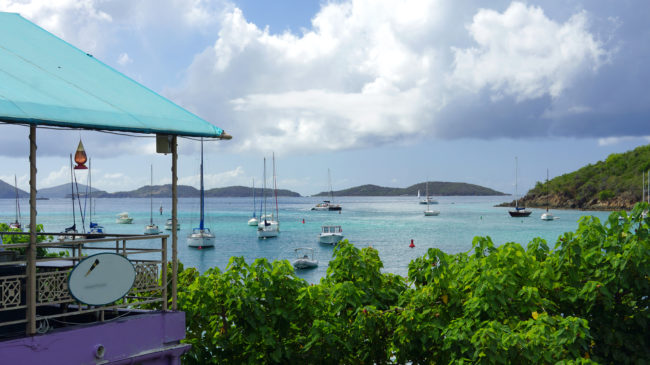Even before the COVID-19 epidemic hit the US and its financial markets, retirement benefits for the US Virgin Islands’ public sector retirees were at risk. Now, with a bear market shrinking pension fund assets in the Virgin Islands and beyond, the threat of pension benefit cuts has only increased. The Virgin Islands’ policymakers and public workers need to act now because the government is no more than a few years away from not being able to pay benefits to retired pensioners.
Although this American territory may seem remote, its pension issues could also be a canary in the coal mine, serving as a warning to many other underfunded pension systems across the rest of the nation.
The Virgin Islands’ Government Employees Retirement System (GERS) had a funded ratio of 20.8 percent in October 2018, meaning that it had less than 21 percent of the assets needed to cover promised obligations. GERS’ assets of $768 million were dwarfed by liabilities of $3.7 billion, leaving an unfunded pension liability of $2.9 billion.
With a population of just 105,000, the territory’s unfunded pension debt equals about $28,000 per resident. This is an especially heavy per-capita fiscal burden for a community whose median household income is well below that of the US mainland.
System actuaries have projected that the pension fund will run out of assets by 2023 and may be unable to fulfill its benefit obligations even sooner. The causes of distress cited by the pension fund’s management include insufficient employer contributions and legislative changes to the plan’s benefits.
To achieve 100 percent funding in the next 20 years, the system’s actuary has recommended that employer contributions be set at 69 percent of payroll as of October 1, 2018. However, the actual employer contribution rate is just 20.5 percent, continuing a long pattern of the legislature budgeting far less for pension contributions than the actuary recommends. What’s more, this pattern of underfunding appears to be worsening. In 2010 actual contributions were below half of the recommended contribution rate and as of 2018 actual contributions were only 36 percent of the recommended amount.
Public sector defined benefit plans are meant to be pre-funded. This means that during the years an employee is earning benefits, the plan should receive the required contributions to eventually pay that employees their promised benefits. In contrast, a pay-as-you-go system, like social security, relies on current employees’ contributions to pay for the benefits of current retirees.
With funding reaching dangerously low levels, GERS has arguably been morphing into a pay-as-you-go system. This funding strategy is unsustainable without significant contribution increases given the fact that annual contributions are lower than the system’s benefit payments and administrative expenses.
Also contributing to the system’s low funding status was the US Virgin Islands’ decision to legislatively encourage early retirement. These mandates included increased retirement benefit packages without sufficient funding, which exacerbated unfunded liabilities.
The inspector general’s review of the Virgin Islands’ Early Retirement Incentive, Training and Promotion Act of 1994 found the law had cost GERS $121 million. The legislature paid GERS $31 million to partially pay for added benefits, but this still left the fund with a loss of $90 million.
Today, the fund is being exposed to losses from the impact of the coronavirus on financial markets. Over recent decades, many public pension funds have shifted their asset allocations to more risky investments like publicly-traded equities and alternative assets, such as private equity funds. Safer, fixed-income investments no longer typically provide high returns, thus public pension funds have invested in more risky investments in search of higher yields to meet the level of expected returns.
The Virgin Islands has followed this trend. According to its most recent audited financial statements, as of 2017, the plan was 41 percent invested in domestic and international equity as well as 30 percent invested in alternative assets. If this allocation still prevails, the fund was heavily exposed to this year’s market volatility.
This investment policy is especially risky for a mature pension system whose benefit payments exceed contributions and whose overall funding is limited. Unless market conditions improve, the system could well run out of assets before 2023. If, or when, the system’s assets are exhausted, employees will suffer a 55 percent reduction in pension benefits. To avoid this fate, the Virgin Islands legislature will need to enact major pension reforms, including increasing contributions and a large cash infusion into the system.


